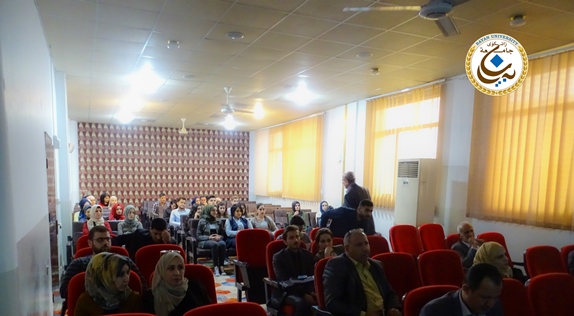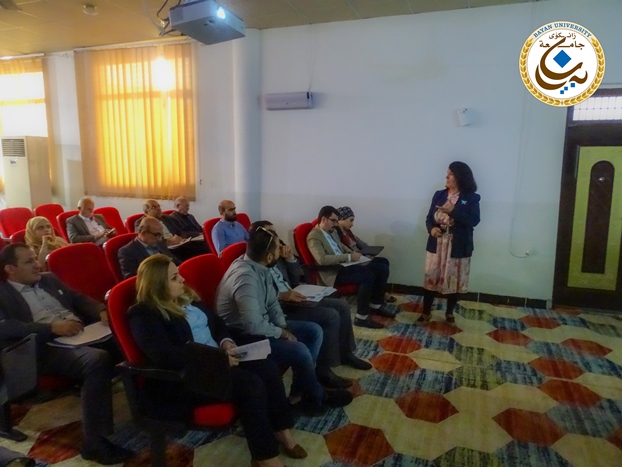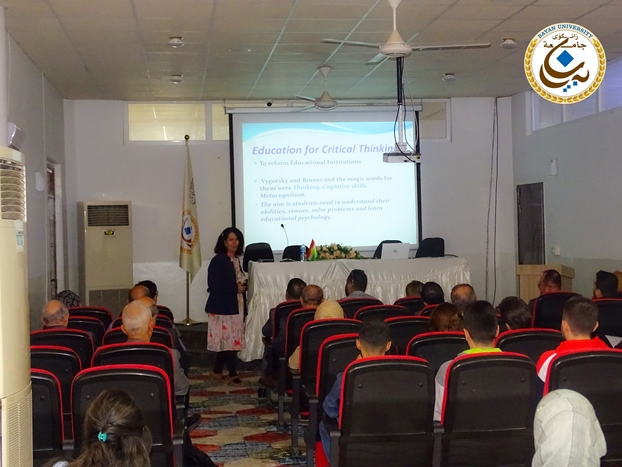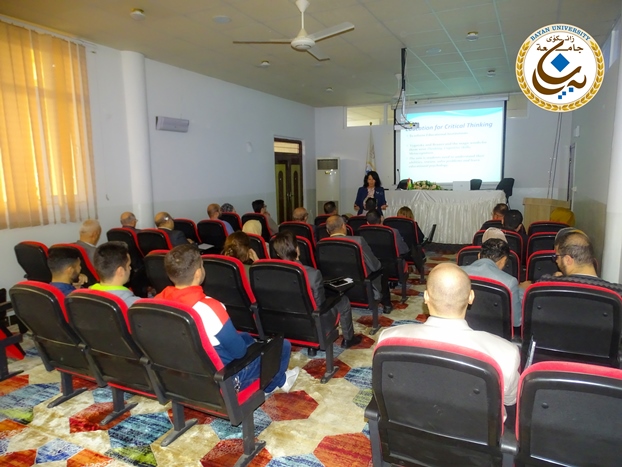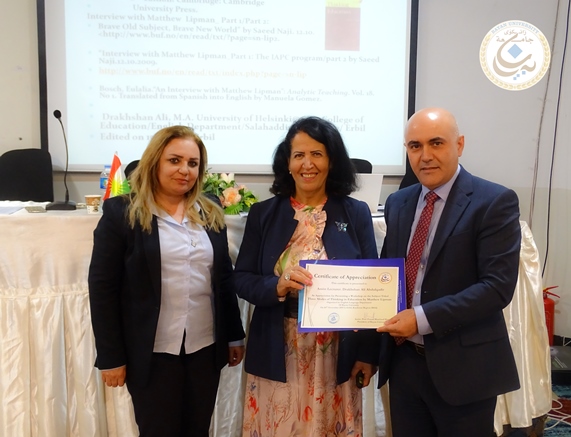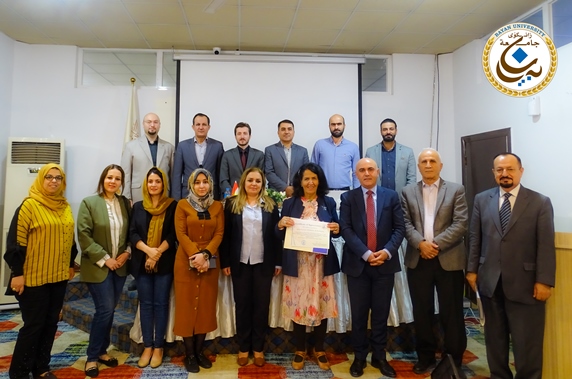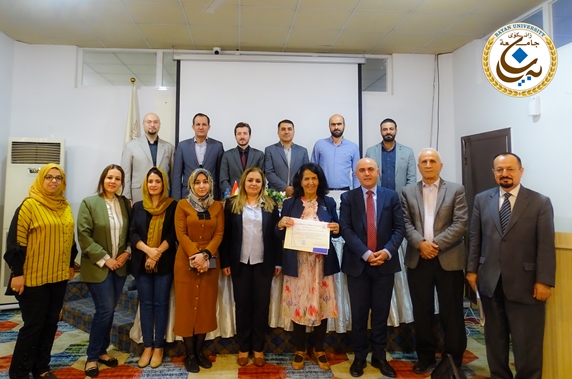
Bayan University organizes a workshop entitled "Models of Thinking in Education" by Matthew Lipman
Bayan University organized a workshop in Nawroz Hall on campus on Monday 4/11/2019 entitled (Models of thinking in education by Matthew Lipman). Dr. Drakhshan Ali Abdul Kader "Head of the English Department at (Bayan University BNU) in the presence of the assistant to the President of the University for scientific affairs (Dr. Bengeen Mussleh Oudel) and the Dean of the Faculty of Law and International Relations and Diplomacy and the Dean of the Department of Computer Science Of different stages and sections.
The workshop started with a detailed explanation of the models and the founder of these models
Lipman is one of the founders of the modern philosophy of the children's movement. Founded by the Institute for the Advancement of Philosophy for Children as part of Montclair State University, Lippman emphasizes teaching for critical thinking, his attempts to reform traditional educational systems by teaching philosophy to children in elementary schools and helping them to think for themselves become a powerful tool in pedagogy. Informal thinking and reasoning for undergraduate and graduate students is another important reform in education that it fosters in the United States.
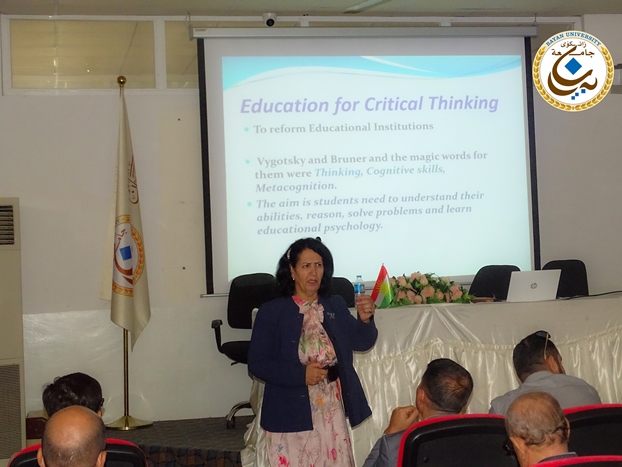
:Lipman classifies the three models as follows
1- Teaching critical thinking
The goal is that students need to understand their abilities, mind, problem solving and learning educational psychology.
2 - Education for creative thinking
Aims to produce thinking students, thinking teachers, thinking schools of education
3. Education to nurture thinking
That the disguised power of the controversy and its logical power supports critical thinking, and deepened the details of each point on the methods of education and the best in order to reach the desired goal.
She warned that programs that try to enhance students' ability to recognize and solve problems,
Practice programs by reasons, practice standards, hypotheses and results. Hypotheses to solve problems based on the "Dewey" approach and touched on the characteristics of each of the three methods and what the most important ways to walk to get to what is required.
The workshop included a discussion about what you need to achieve this program or how we can achieve this program and what characteristics to follow, which are explained in the following forms:
. Teachers need one novel for each child, as well as an educational guide for the teacher.1
2 - Teachers need a training course on how to conduct a philosophical discussion, how to use exercises and how to encourage children to think for themselves. This training takes advantage of the philosophy text in the classroom by Lipman and Sharp.
3. Send representatives to the International Center in Mindham, New Jersey for Philosophy for Children, held each year in the last week of May and in the last two weeks of August.
Critical thinking and philosophy for children are the strongest educational programs in pedagogy to revolutionize traditional schools and aim to improve students' thinking to be creative and interested in their learning.
She added that the main objective of the workshop
"How to implement the critical thinking and philosophy program for children in our educational institutions and local schools"
The workshop concluded with exchanging views, asking questions from both parties and presenting various suggestions by the attendees.
